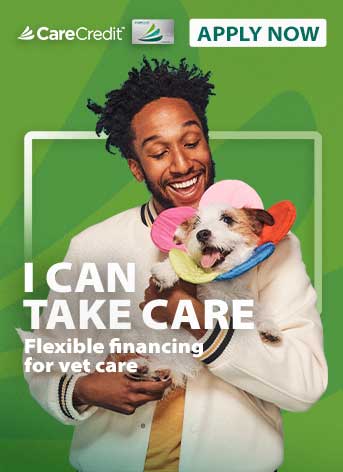What Human Foods Are Safe for Dogs?
Many dogs (and cats) have digestive issues or food allergies, so "what is safe" can depend heavily on the individual animal. If you know your pet has a digestive problem, it's best to stick with what they usually eat and not deviate much.
If your dog doesn't have any issues, the best options for them (in moderation) include:
- Lean breast meat (chicken, turkey)
- Berries
- Bananas
- Apples
- Carrots
- Green beans
What Human Foods Are Dangerous for Dogs?
Rich fatty foods are not good for a dog's digestion. Too much fat can make the pancreas swell, which can be life-threatening. So try to avoid giving your dog foods high in fat, like fatty steak and bacon grease.
What Happens if My Dog Eats Chocolate?
Chocolate has a caffeine byproduct called theobromine in it – and it's the part of chocolate that's dangerous for dogs. The dark and richer the chocolate, the more theobromine it has, and the more dangerous it is.
For example, raw cocoa powder would be bad, whereas white chocolate (which doesn't contain theobromine) would be ok. If your dog has eaten chocolate, call your vet right away so they can advise you on the best course of action.
Why Does My Dog Eat Grass?
No one knows for sure why dogs eat grass. If they seem otherwise healthy and are nibbling grass while playing outside, they may just enjoy the taste.
However, if your dog is eating grass, vomiting, and then eating more grass, it could be a sign of digestive issues. Your dog may be eating grass to self-soothe or calm down their stomach in this situation.
Ultimately, eating grass may not be the issue, but it could be a sign of a larger problem that needs to be evaluated.
Should I Give My Dog Bones? What Kind?
Generally, bones (of any kind) are not the best thing to give your dog to chew on. Bones can cause many problems (like intestinal blockages) because dogs often want to gobble them down quickly. Bones can cause different issues because they can get stuck in areas like:
- Teeth
- Back of the throat
- Esophagus
- Gastrointestinal tract
How Do I Know if My Dog Has Ingested Something Toxic?
If your dog is exhibiting unusual behaviors or symptoms, and you think they may have gotten into something, the best thing to do is call your vet. Take your dog to an emergency clinic if it's at night or on the weekend.
Once at the vet's office or clinic, veterinary care professionals will do tests to get to the root of your dog's symptoms. Tests may include:
- Performing a physical exam
- Taking samples of blood to analyze
- X-raying their stomach
- Doing an ultrasound of their stomach
How Can I Tell if My Dog’s Vomiting Is Serious?
Pay attention to how long your dog is vomiting and what (if anything) they are bringing up. Unfortunately, there is no reliable way to tell whether or not vomiting is severe; it's ultimately about how your dog's symptoms all come together.
Call your vet if your dog:
- Has foreign material in their vomit
- Has multiple episodes of vomiting over a few days
- Doesn't want to eat or drink
- Seems lethargic
- Seems agitated
On the other hand, it's less concerning if the vomit doesn't have any foreign materials and your dog acts otherwise fine (eating, drinking, sleeping as usual). But if you're worried, it's probably a good idea to have your veterinarian check your dog out.
CareCredit for Veterinarian Care
The CareCredit credit card provides promotional financing that helps make it easy to pay for vet bills over time.** CareCredit is like having a separate line of credit for your vet care and healthcare needs. Once approved for a CareCredit card, you can use it repeatedly (as long as credit is available) for veterinarian care at locations that accept CareCredit.
CareCredit can also be used to pay for copays, coinsurance, deductibles, and your health and wellness needs at providers in the CareCredit network. CareCredit is accepted at hundreds of thousands of locations nationwide to pay for care whenever you need and want it.
Visit www.carecredit.com if you're interested in applying for a CareCredit credit card or would like to find a provider in your area who accepts CareCredit.
Meet the Expert
Dr. Ayeley Okine
Dr. Ayeley Okine is a board-certified veterinarian and graduate of Cornell University's College of Veterinarian Medicine. She specializes in gastrointestinal and immune-mediated blood diseases.
Author Bio
Kristin Driver is a digital writer with CareCredit. She specializes in writing about health care, finances, and pet care. Her work has been published by Cedars-Sinai, UCLA Health, Stanford Health Care, Risk & Insurance, Modern Health Care, Risk Insider, CIO Review, and more.










